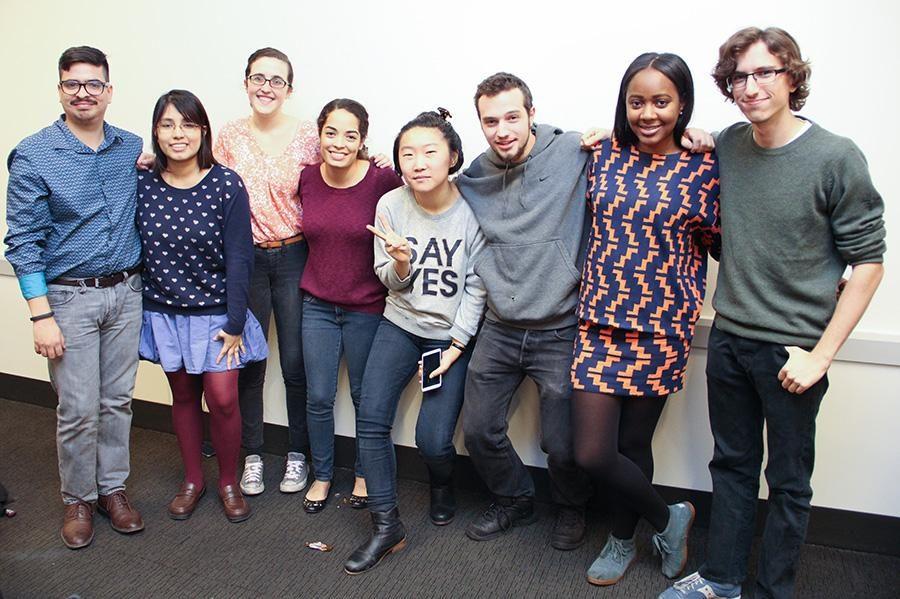Student organizations explore citizenship policy
November 5, 2014
NYU students engaged in an open conversation about U.S. citizenship and addressed the increase in U.S. incarcerations and immigration-related penal actions — both of which have reached record highs in the last two decades — in an event held on Nov. 4.
The discussion was jointly organized by the NYU Dream Team, which aims to make NYU more accessible to undocumented students, and the Incarceration to Education Coalition, an organization centered around the NYU community fighting to abolish restrictions on incarcerated persons’ access to higher education.
Danny Lentz, a Gallatin alumnus and member of the IEC, spoke about what the group hoped to accomplish at the forum on citizenship.
“Our immediate campaign is to abolish the box at NYU and the Common Application, the box that asks if you have ever been convicted of a misdemeanor or felony,” Lentz said. “The more that you interrogate the fear behind that, the more you realize a person with that experience can actually add to a classroom environment.”
Sarah Lawrence professor of public policy Luisa Heredia opened the conversation with a statement reflecting the change the 1990s and 2000s brought in terms of U.S. penal and immigration policy.
“We’re in this kind of unprecedented moment in the U.S., and it’s due to this kind of enhanced scope as well as the accuracy of the U.S.’s enforcement regime,” Heredia said. “In 1990, there were somewhere around 30,000 non-citizens deported. So fast forward 10 years to 2000 and that number goes to 200,000 people deported. Fast forward another 10 years and that number goes up to 400,000 people deported.”
This surge in deportations represents only part of the equation. The last two decades have also yielded a disproportionately high increase in detentions of non-citizens and a U.S. prison system that has seen an increase in incarcerations of 1,664 percent from 1990 to 2009, according to the American Civil Liberties Union.
Participants also discussed the idea of citizenship as it affects those it excludes, namely the increasing number of incarcerated persons and non-citizen residents — both documented and otherwise — in the United States Students spoke about how citizenship can be an exclusive construct as well as an inclusive one. As the opinions mounted, the privileged nature of U.S. citizenship was a recurrent theme.
Tisch senior Marco Galaviz Luna, who plans to become a U.S. citizen next year, said citizenship is an unfortunate necessity.
“I’m going to become a citizen, because then I can’t get deported,” Galaviz Luna said. “The idea of citizenship, it’s a very real, tangible benefit that I previously and currently don’t have. I understand the need to question citizenship, and what that means in terms of nations and nation states, but at the same time I want my mom not to get deported.”
A version of this article appeared in the Wednesday, Nov. 5 print edition. Email Rahul Krishnamoorthy at [email protected].



























































































































































